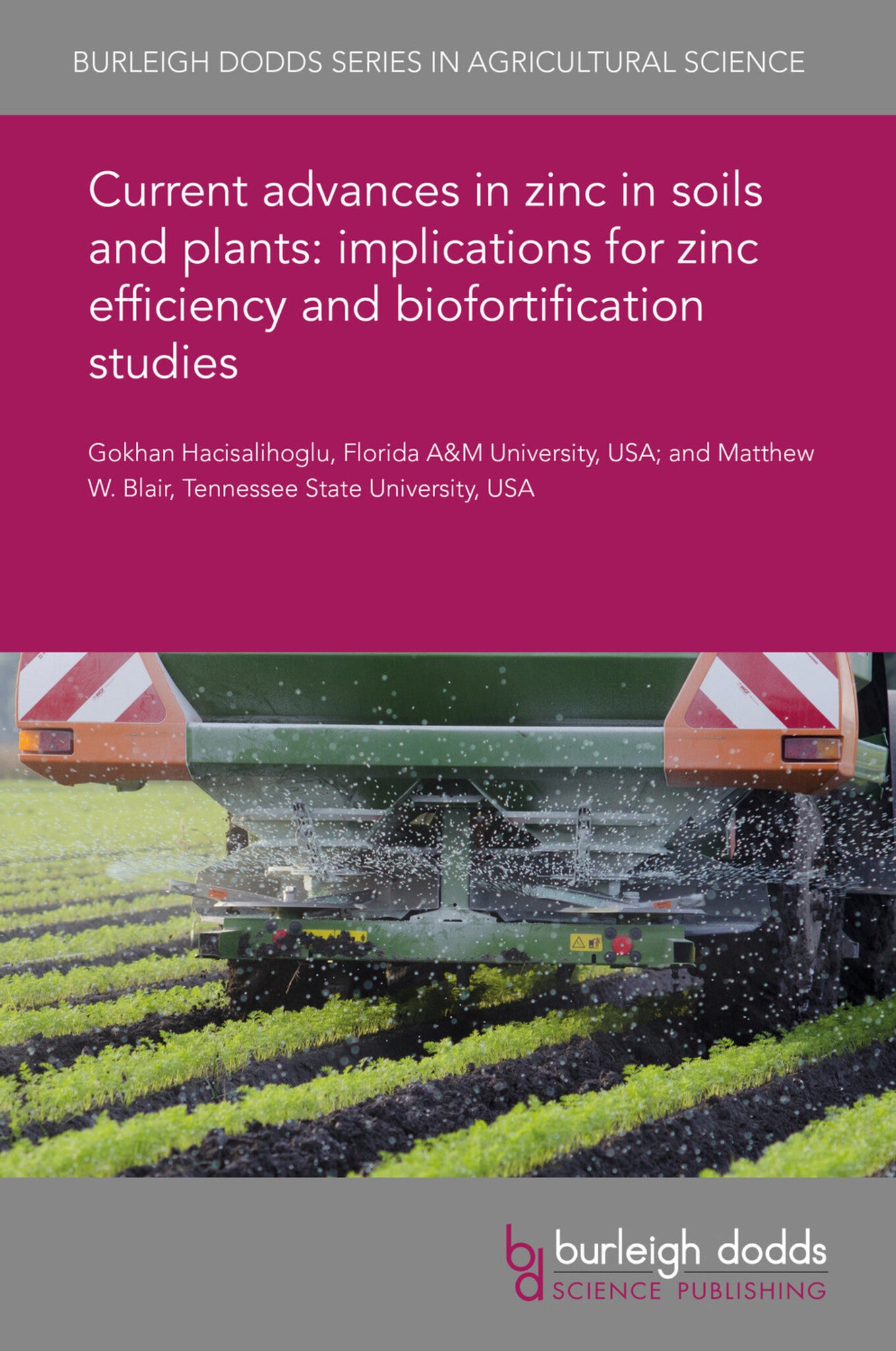We're sorry. An error has occurred
Please cancel or retry.
Current advances in zinc in soils and plants: implications for zinc efficiency and biofortification studies
Regular price
£25.00
Sale price
£25.00
Regular price
£25.00
Unit price
/
per
Sale
Sold out
Re-stocking soon
Zinc (Zn) deficiency is one of the critical abiotic stress factors that often limits crop production, yield, and quality worldwide. It is estimated over one third of the global arable lands are aff...
Read More

Some error occured while loading the Quick View. Please close the Quick View and try reloading the page.
Couldn't load pickup availability
- Format:
-
17 February 2020

Zinc (Zn) deficiency is one of the critical abiotic stress factors that often limits crop production, yield, and quality worldwide. It is estimated over one third of the global arable lands are affected by Zn deficiency and so there is a need for more Zn-efficient crops. This chapter critically examines the most recent research developments in soil and plant nutrition for Zn efficiency issues. The chapter identifies trends related to Zn deficiency stress, seed Zn accumulation, and Zn efficiency for sustainable crop production and global food security. Finally, the chapter describes putative mechanisms governing Zn uptake and Zn efficiency, natural diversity in these traits and the important knowledge gaps that remain in these areas.

Price: £25.00
Publisher: Burleigh Dodds Science Publishing
Imprint: Burleigh Dodds Science Publishing
Series: Burleigh Dodds Series in Agricultural Science
Publication Date:
17 February 2020
ISBN: 9781786766595
Format: eBook
BISACs:
TECHNOLOGY & ENGINEERING / Agriculture / Sustainable Agriculture, Agronomy and crop production, TECHNOLOGY & ENGINEERING / Agriculture / Agronomy / Crop Science, Sustainable agriculture

1 Introduction 2 Global importance of Zn nutrition and Zn-deficiency stress 3 Zn cycling in soil and root uptake traits to increase transport 4 Natural variation in Zn efficiency among crop genotypes 5 Zn in crop production and biofortification 6 Conclusion and future trends 7 Where to look for further information 8 References



